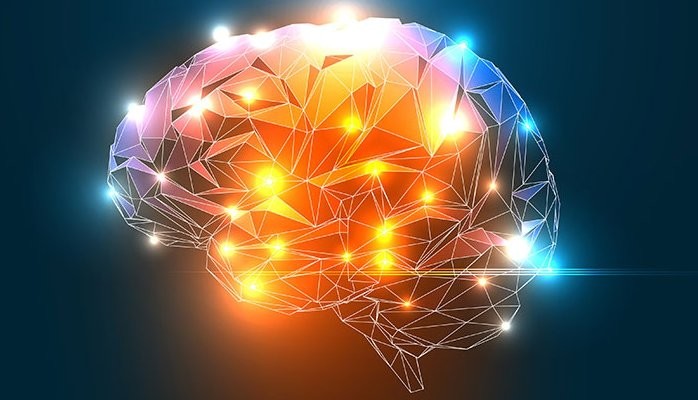Introduction: Why Brain Health Matters More Than Ever
Your brain is the command center of your body, controlling everything from thoughts and emotions to movement and memory. Yet, many people neglect brain health until cognitive decline becomes noticeable. With rising cases of dementia, Alzheimer’s, and mental fatigue, maintaining a sharp mind is no longer optional—it’s essential.
Recent neuroscience research reveals that simple lifestyle changes can significantly enhance brain function, protect against cognitive decline, and even reverse some age-related damage. This comprehensive guide explores seven science-backed brain health strategies that can help you stay mentally sharp at any age.
1. Nutrition for a Sharper Mind: Feed Your Brain the Right Fuel
The Brain’s Dietary Needs
Your brain consumes 20% of your body’s energy, yet it’s highly sensitive to poor nutrition. A diet rich in brain-boosting nutrients can enhance memory, focus, and mental clarity while reducing the risk of neurodegenerative diseases.
Key Brain-Boosting Foods:
-
Omega-3 Fatty Acids (found in salmon, walnuts, flaxseeds) – Improve neuron communication and reduce brain inflammation.
-
Antioxidants (blueberries, dark chocolate, spinach) – Combat oxidative stress, a major factor in cognitive decline.
-
Whole Grains & Leafy Greens – Provide steady glucose for energy and essential B vitamins for neurotransmitter production.
The Mediterranean Diet: A Brain-Saving Lifestyle
A 2024 Johns Hopkins study found that people following a Mediterranean diet (rich in olive oil, fish, nuts, and vegetables) had a 35% lower risk of dementia compared to those on a standard Western diet.
Takeaway: Swap processed foods for brain-nourishing whole foods to enhance cognitive function and long-term brain health.
2. Exercise: The Brain’s Natural Growth Hormone
How Physical Activity Rewires Your Brain
Exercise isn’t just for muscles—it’s a powerful brain booster. Aerobic activities like running, swimming, and brisk walking increase blood flow to the brain, promoting neurogenesis (the growth of new brain cells).
Science-Backed Benefits:
-
30 minutes of daily walking can increase hippocampus size (memory center) by 2% per year, reversing age-related shrinkage.
-
Strength training enhances executive function, improving decision-making and problem-solving skills.
-
Yoga and tai chi reduce stress hormones that damage brain cells.
Best Brain Exercises:
-
High-Intensity Interval Training (HIIT) – Boosts BDNF (Brain-Derived Neurotrophic Factor), a protein that supports neuron growth.
-
Dancing – Combines movement, coordination, and memory, making it one of the best workouts for brain health.
Takeaway: Move daily—even a 20-minute walk can sharpen your mind.
3. Sleep: The Brain’s Nightly Detox Session
Why Sleep is Non-Negotiable for Brain Health
During deep sleep, your brain’s glymphatic system activates, flushing out toxins like beta-amyloid (linked to Alzheimer’s). Poor sleep disrupts this process, leading to memory fog and cognitive decline.
How Much Sleep Do You Need?
-
Adults: 7-9 hours
-
Seniors: 7-8 hours (sleep quality matters more with age)
Tips for Better Sleep:
-
Avoid screens 1 hour before bed (blue light disrupts melatonin).
-
Keep a consistent sleep schedule.
-
Try deep breathing or meditation before bed to improve sleep quality.
Takeaway: Prioritize sleep like your brain depends on it—because it does.
4. Stress Management: Protect Your Brain from Shrinkage
How Chronic Stress Damages the Brain
Prolonged stress shrinks the prefrontal cortex (responsible for decision-making) and enlarges the amygdala (fear center), making you more anxious and less focused.
Science-Backed Stress Reducers:
-
Meditation – Just 8 weeks of mindfulness practice can increase gray matter density in memory and emotional regulation areas.
-
Deep Breathing Exercises – Lowers cortisol (stress hormone) levels.
-
Nature Walks – Reduces mental fatigue and boosts creativity.
Takeaway: Manage stress daily to keep your brain resilient.
5. Lifelong Learning: Build a Cognitive Reserve
Why Novelty Keeps Your Brain Young
Learning new skills strengthens neural connections, creating a cognitive reserve that delays dementia symptoms.
Best Brain-Challenging Activities:
-
Learn a new language or musical instrument.
-
Play chess, puzzles, or strategy games.
-
Read complex books (fiction improves empathy; non-fiction enhances knowledge).
Takeaway: Keep learning—your brain thrives on challenge.
6. Social Connections: The Brain’s Anti-Aging Secret
How Relationships Boost Cognitive Health
Loneliness accelerates brain aging, while strong social ties improve memory and emotional resilience.
Ways to Stay Socially Active:
-
Join clubs or discussion groups.
-
Maintain deep conversations (small talk doesn’t stimulate the brain as much).
-
Volunteer—helping others enhances mental well-being.
Takeaway: Nurture relationships—they’re brain fuel.
7. Digital Detox: Reclaim Your Focus
How Multitasking Dumbs You Down
Constant screen-switching reduces IQ by 15 points temporarily and impairs deep thinking.
Tips for a Brain-Friendly Tech Diet:
-
Set phone-free hours (e.g., mornings and evenings).
-
Practice single-tasking (focus on one thing at a time).
-
Take nature breaks to reset attention span.
Takeaway: Less screen time = sharper mind.
Conclusion: Small Changes, Big Brain Benefits
Your brain is plastic—it can grow and adapt at any age. By incorporating these science-backed habits, you can enhance memory, focus, and mental agility while protecting against cognitive decline.
Start today—your future brain will thank you.
Discover more from News247 Nigeria
Subscribe to get the latest posts sent to your email.






